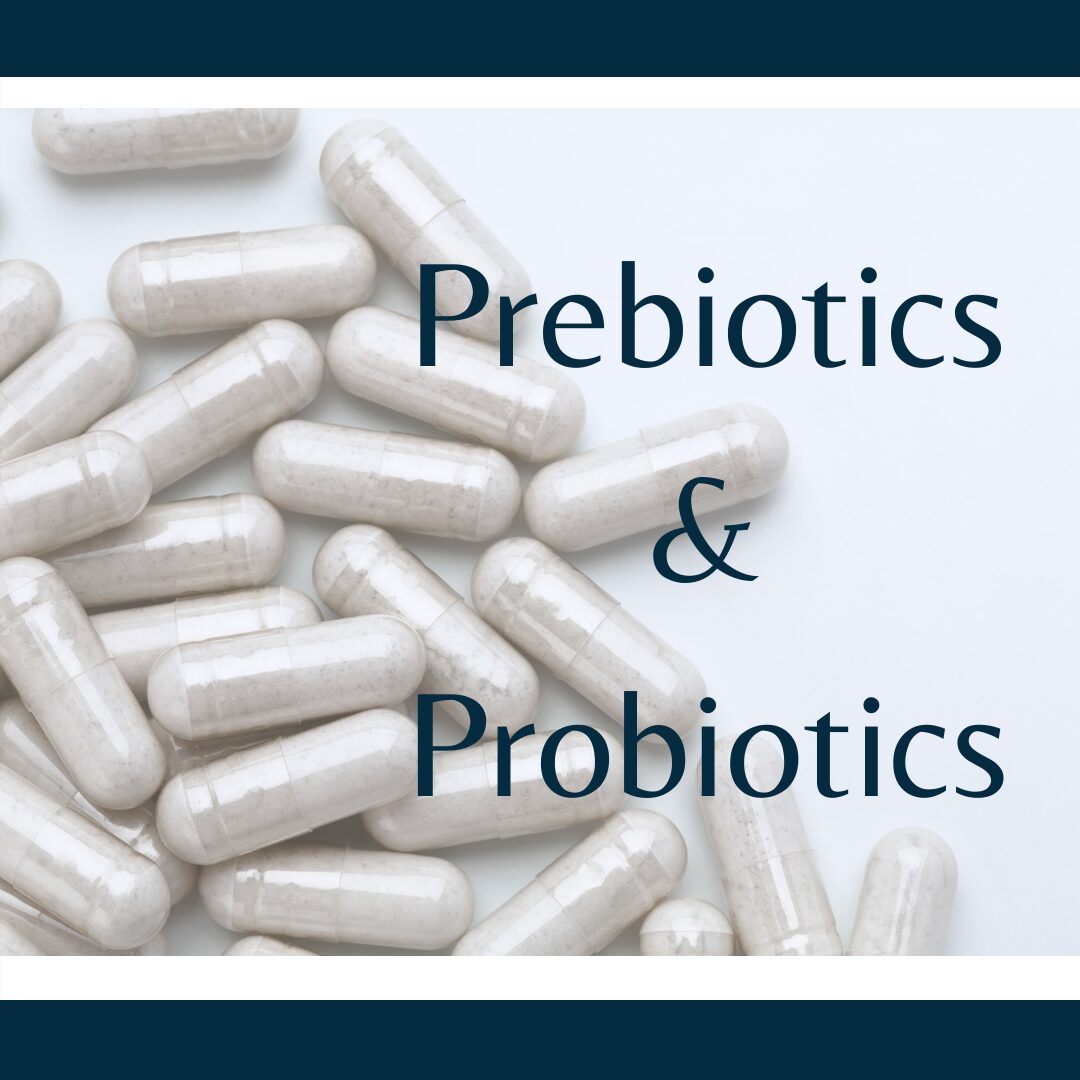I’m sure you have heard the word probiotic before, but do you know the importance of probiotics? How about the importance of prebiotics?
Our digestive tract is comprised of over 500 different species of bacteria totaling in 100 trillion different “bugs” altogether! These “bugs” play a vital role in digesting food, synthesizing different vitamins and immune defense. They also help to create the ever important barrier to filter and appropriately absorb the nutrients we consume. So when we experience a shift in our gut flora (gut bacteria) we may start to experience things like gas, bloating, constipation/diarrhea, etc.
Probiotics are considered to be the “good” bugs of the digestive tract. Probiotic bacteria are ones that we can constantly replenish through foods and/or supplementation. Two of the main probiotic strains are Lactobacilli and Bifidobacteria. These two things you will find through food, but also through supplementation. Some common probiotic foods are:
- Buttermilk
- Cheese (aged)
- Cottage cheese
- Kefir
- Sour cream
- Yogurt (plain, no added sugar, active cultures)
- Fermented meats
- Fermented vegetables
- Kimchi
- Kombucha
- Sauerkraut
- Tempeh
Now prebiotics are actually the fiber-rich foods that probiotics feed and grow on. We don’t want to confuse probiotic and prebiotic. Probiotics are living organisms, while prebiotics act as the food for these bacteria. So to keep a healthy amount of probiotic bacteria in your digestive tract, you also need to have a good amount of prebiotic “food”. And an added bonus- when the probiotics breakdown the prebiotic “food”, butyric acid is produced in the colon. Butyric acid is the preferred fuel for cells in the colon to acidify the environment making it hard for harmful bacteria to survive (another immune defense). Here are some examples of great prebiotic foods:
- Apples
- Asparagus
- Banana
- Eggplant
- Garlic
- Honey
- Onion
- Peas
- Legumes
To keep a healthy colonization of probiotic bacteria in your digestive tract, you want to consume or take a supplement regularly. For a healthy colony, you want 1 to 25 billion colony-forming units (CFUs) daily. So for an example, store-bought probiotic yogurt provides 1 billion CFUs per serving. This is why it is important to balance your diet with probiotic foods as well as using possible supplementation.
There are many different probiotic/prebiotics are the market in supplement form. However you do need to be cautious of what you consume due to the “added” ingredients or the strains of bacteria used. We recommend the UltraFlora line by Metagenics. This line of not only probiotic/prebiotic, but many other supplements is only provider available, but you can be guaranteed quality supplements.
If you would like to learn more about Metagenics or supplements, please reach out!

